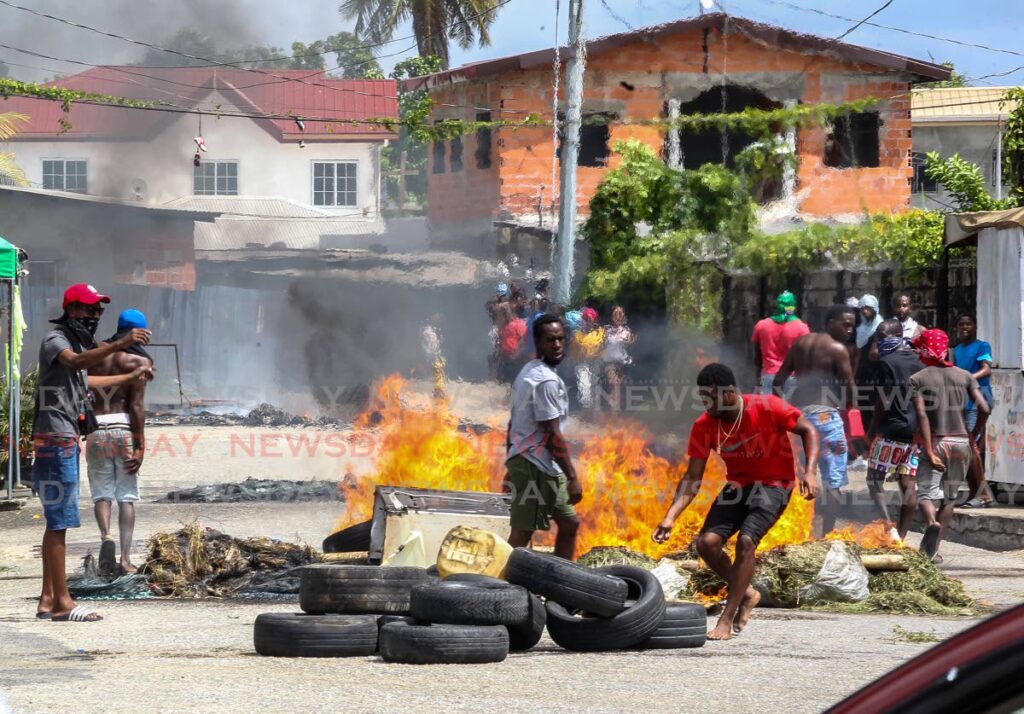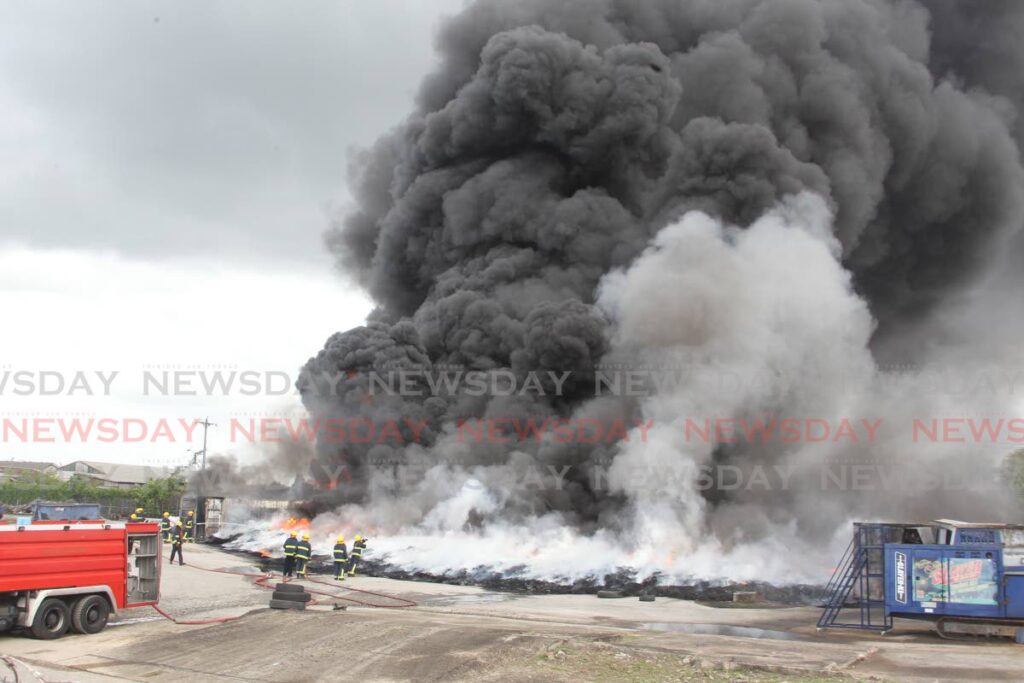The flames of fear

I returned home on Monday from dealing with a several QCs in London who were most curious about how the TT bar was dealing with its latest controversies with the AG and his problems with the Kuei Tung/Ferguson case, and whether previous cases involving a former attorney general and a senior attorney and one prominent Jamaican QC (in exile in Italy). And if not, why not?
Apparently, I learned, they actually do cases like that that in England. In the Miami case, one of the conspirators also served his time in prison, is back out and getting on with his life. Interesting, that.
As I mentioned last week, criminal attorneys are on strike in England. In the process destroying the criminal justice system, while the administration seems to be indifferent. Courts only work two days a week because the government that sets their fees has not adjusted incoming advocates’ fees for decades. As a result, most graduates opt not to go into that branch of law. The chief prosecutor in London's Old Bailey told me the newly appointed members of the criminal bar are paid so little that one young man he deals with has to walk for two-and-a-half hours each way to get to and from court because he cannot afford public transport. I paid £22, about TT$200, to travel from Watford to Euston Station about the distance from Port of Spain to Arima.
It is a polite way to strike without overt violence, but it sends a message. On my way home Monday I had to dodge burning tyres on the Lady Young flaming up against the night sky. I was startled, frightened and impressed. I was a child when I witnessed the burial of an indigenous chief from a tribe called Montagnais near to where we lived. He was resting in a canoe, with gasoline poured over him, set on fire and launched at night into a river to continue his journey to the hereafter. I was frightened but even then I understood that it was sending a message to their powerful god Manitou. A form of communication that cannot be ignored.

Extra-judicial killings are also messages by the powerful: this time against the less powerful when they do not obey. Angry flames and broken glass are used against the powerful when they do not know any other way to get their messages heard, not feeling listened to in any other way.
Power is an extreme statement of autocracy. Punish, not persuade. Tyrants who are afraid, use it when they fear losing power and control. In business, and against respected equals, leaders negotiate, which inevitably involves skill, compromise and agreement. It earns public respect and good customer service
Punishment is used in the classroom by people who have never been taught classroom management, so keep a switch across their desks and it teaches children that violence against those who are smaller and weaker is the best way to get your own way, and can lead to cringing deference in the school yard. As adults it is used by men against women who will not come to them willingly, or who threaten to leave them.
In business organisations there are three kinds of fear that dominate and control people. One is the fear of loss of safety and security, of loss of the job that provides food and security for you and your family. Not to have a job, or even to lose one through retirement, retrenchment or poor performance takes away the feeling of status and respect that being part of community has given human beings since Jurassic times. It can be used as a motivator or an intimidation, depending on how your parents or community shaped you as a child.
The second, and which is connected to the first, is the loss of affection, status and esteem from others. There is actually a recognised trauma by schools of psychology called mirasmus (remember the local expression – what a mirasme-looking man?) I first learned about it in studies about mental and emotional deformity among children who were orphaned during WWII and in Romania under Ceausescu, where institutionalised orphaned infants were not allowed to be held or cuddled or shown any signs of physical affection. Some 80 per cent of them died due to lack of stimulation of the nervous system. Those who lived were unable to express feelings or emotions which ruins their adult ability in relationships.
You see it among managers and other people at work that were raised by a certain weird generation of people who believed that showing a child affection would “spoil” them. They cannot compliment work well done or praise accomplishment among employees. Since appreciation is a psychological necessity in human beings, deprivation results in a variety of mental illnesses. We saw a lot of this during lockdown when achievement, other than for medical staff, was absent either domestically or in communities. I did not know if this “don’t pick them up when they cry” belief was a result of slavery and the “toughen them up” treatment dealt out to slaves or not. But it is still around.
The third fear is, of course, the combination of the other two, the fear of loss of power and control where the loss of being able to control our own environment is inherent in our DNA. It was essential to the survival of the species in a terrifying world dominated by unpredictable nature which destroys life without warning through fire, flood, earthquakes, landslides, lightning, volcanoes erupting, the list goes on and on. You can run but you can’t hide. Everyone has that built into us and fear of it is what politicians, partners, pandemic preachers and often parents promise to protect us from. To overcome that fear through spirituality, through appeasement of those forces in power or through developing our own abilities is what maturity is all about. To see flames leaping on Lady Young or through the reactions of police – adverse rioters are consequences that can only be dealt with long-term by delving to the real, not the culturally assumed actions that are the cause.
In physics, they taught us that every action has positive or negative consequences. To change the consequences of actions that control by fear, could it be that physics is right and there are some core actions that need changing?


Comments
"The flames of fear"